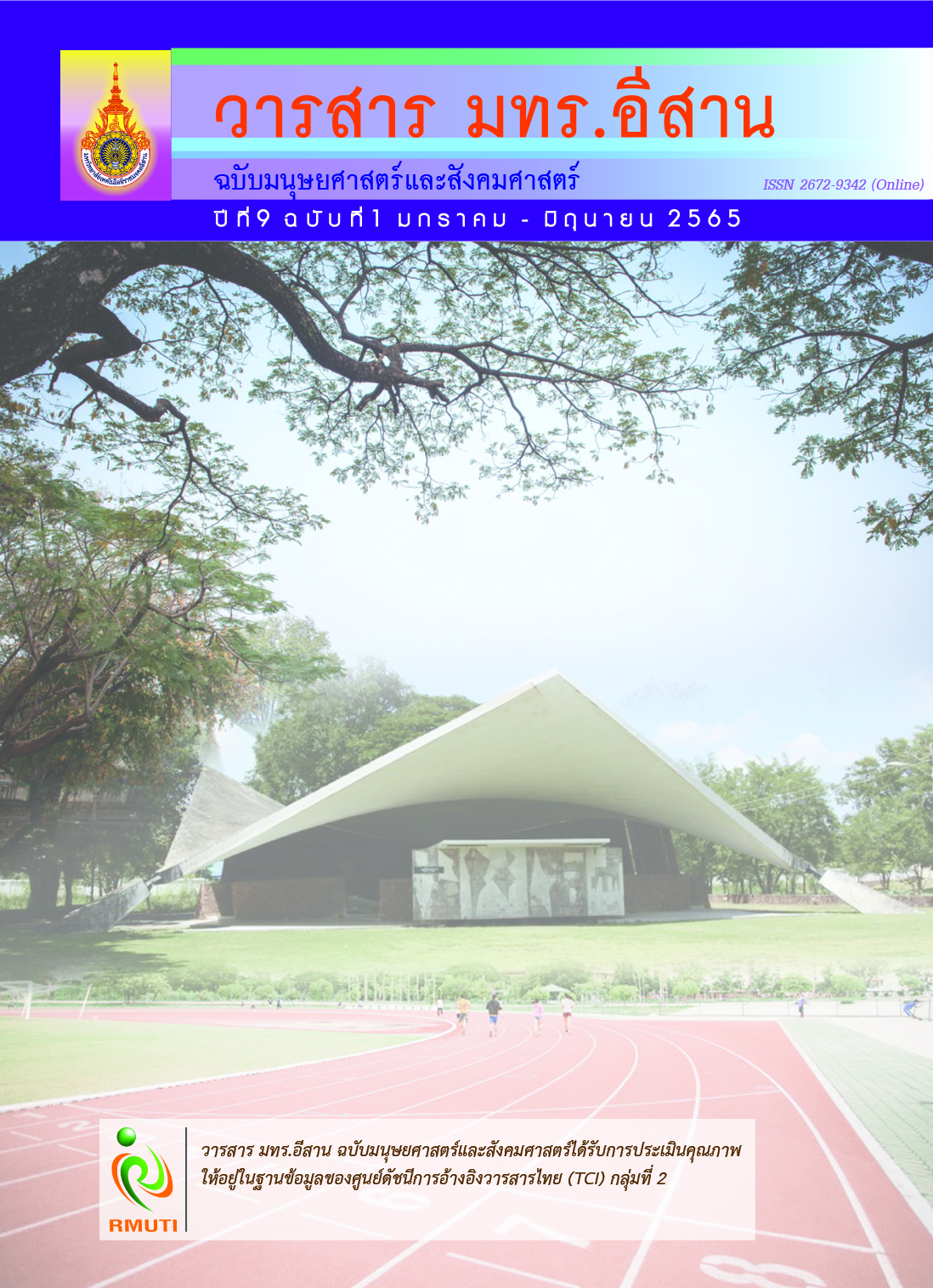The Influence of Social Media on Women Empowerment
Main Article Content
Abstract
This academic article is to compile and analyze on the title "The Influence of Social Media on Women Empowerment," under the conceptual framework of new media and empowerment. At present, we don’t deny that the social media is the most powerful media of century and play the significant role for the ways of life inevitably. Because no matter where we go, we will see it enveloping us all the time. A number of academician have metaphorically said that the social
media seems to be a door dragging the women from the domestic sphere to the public sphere. In other words, the social media was the important tool for empowering which may be in the form of any form of powers that is power over, power from within, power with and power to. These power can enhance a woman in dimensions of the social empowerment, economic
empowerment, political empowerment and so forth.
Article Details

This work is licensed under a Creative Commons Attribution-NonCommercial-NoDerivatives 4.0 International License.
บทความที่ได้รับการตีพิมพ์เป็นลิขสิทธิ์ของมหาวิทยาลัยเทคโนโลยีราชมงคลอีสาน
ข้อความที่ปรากฏในบทความแต่ละเรื่องในวารสารวิชาการเล่มนี้เป็นความคิดเห็นส่วนตัวของผู้เขียนแต่ละท่านไม่เกี่ยวข้องกับมหาวิทยาลัยเทคโนโลยีราชมงคลอีสานและคณาจารย์ท่านอื่นๆในมหาวิทยาลัยฯ แต่อย่างใด ความรับผิดชอบองค์ประกอบทั้งหมดของบทความแต่ละเรื่องเป็นของผู้เขียนแต่ละท่าน หากมีความผิดพลาดใดๆ ผู้เขียนแต่ละท่านจะรับผิดชอบบทความของตนเองแต่ผู้เดียว
References
กรมกิจการสตรีและสถาบันครอบครัว. (2563). รายงานการดำเนินงานการส่งสริมความเสมอภาคระหว่างเพศของหน่วยงานภาครัฐประจำปี 2562 ตามยุทธศาสตร์การพัฒนาสตรี พ.ศ. 2560 - 2564. กรุงเทพ: กรมกิจการสตรีและสถาบันครอบครัว กระทรวงการพัฒนาสังคมและความมั่นคงของมนุษย์
กรวรรณ พุทธิวนิช. (2559). การเสริมพลังอำนาจและการสนับสนุนทางสังคมของสมาชิกเครือข่ายครอบครัวพ่อแม่เลี้ยงเดี่ยว. หลักสูตรสังคมสงเคราะห์ศาสตรมหาบัณฑิต การบริหารและนโยบายสวัสดิการสังคม มหาวิทยาลัยธรรมศาสตร์
กาญจนา แก้วเทพ และนิคม ชัยขุนพล. (2555). คูมื่อสื่อใหมศึ่กษา. กรุงเทพ: โครงการเมธีวิจัยอาวุโสฝ่ายวิชาการ สำนักงานกองทุนสนับสนุนการวิจัย
งานสื่อสารสังคม สำนักงานกองทุนสนับสนุนการวิจัย (สกว.). (2560). “สกว.-นิดา้ ” จัดถกสื่อกระแสหลักในยุคประเทศไทย 4.0 : ภาคการศึกษา วิจัย และองค์กรสื่อมวลชน ร่วมเสวนา “ทิศทางหลังประเทศไทย 4.0 ภายใต้การสื่อสารยุคสื่อดิจิทัลใหม่” สร้างการพัฒนาเนื้อหาข่าว “ยุคคนทั่วไปกลายเป็นสื่อ”. เข้าถึงเมื่อ (27 มกราคม 2565). เข้าถึงได้จาก (https://tsri.or.th/th/news/content/85/news)
เจียมจิตต์ ธรรมพิชัย. (2549). กระบวนการเสริมสร้างการเกิดพลังอำนาจในตนเองของสตรี กรณีศึกษาในศูนย์ธารชีวิต (เพื่อสตรี) พัทยา จ.ชลบุรี. หลักสูตรสังคมสงเคราะห์ศาสตรมหาบัณฑิต การบริหารและนโยบายสวัสดิการสังคม มหาวิทยาลัยธรรมศาสตร์
ณัฏฐ์ชดา วัฒนาชัยผล. (2560). สื่อใหม่กับการเปลี่ยนแปลงกระบวนการสื่อข่าว. วารสารมหาวิทยาลัยนครพนม. ปีที่ 7, ฉบับที่ 1, หน้า 63-71
คึกฤทธิ์ ปราโมช พล.ต. ม.ร.ว. (2510). สังคมสมัยอยุธยา หนังสืออ่านประกอบคำบรรยายวิชาพื้นฐานอารยธรรมไทย. กรุงเทพฯ : คณะศิลปศาสตร์ มหาวิทยาลัยธรรมศาตร์
นงเยาว์ เนาวรัตน์. (2561). การศึกษาของผู้หญิง: ตัวตนและพื้นที่ความรู้. มูลนิธิฟรีดริค เอแบร์ท และสาขาวิชาสังคมศาสตร์การศึกษา คณะศึกษาศาสตร์ มหาวิทยาลัยเชียงใหม่
วราพร ดำจับ. (2562). สื่อสังคมออนไลน์กับการเรียนรู้ในศตวรรษที่ 21. วารสารศิลปศาสตร์ มหาวิทยาลัยแม่โจ้. ปีที่ 7, ฉบับที่ 2, หน้า 143-159
พิชิต วิจิตรบุญยรักษ์. (2554). สื่อสังคมออนไลน์: สื่อแห่งอนาคต. วารสารนักบริหาร. ปีที่ 31, ฉบับที่ 4, หน้า 99-103
สำนักงานคณะกรรมการการพัฒนาการเศรษฐกิจและสังคมแห่งชาติ. (2563). ทิศทางการพัฒนา เศรษฐกิจและสังคมแห่งชาติฉบับที่ 12 (พ.ศ. 2560 - 2564). เข้าถึงเมื่อ (กันยายน 2564). เข้าถึงได้จาก (https://www.nesdc.go.th/ewt_news.php?nid=6420&filename=develop_issue)
สถาบันพระปกเกล้า. (2561). เสมอภาคสร้างได้. สำนักวิจัยและพัมนา สถาบันพระปกเกล้า
สหประชาชาติประเทศไทย. (2564). เป้าหมายการพัฒนาที่ยั่งยืน 5 ความเท่าเทียมทางเพศสร้างความเท่าเทียมทางเพศ เสริมพลังทางสังคมแก่ผู้หญิงและเด็กหญิง. เข้าถึงเมื่อ (15 กรกฎาคม 2564). เข้าถึงได้จาก (https://thailand.un.org/th/sdgs/5)
อณิษฐา หาญภักดีนิยม. (2564). รูปแบบการขับเคลื่อนบทบาทสตรีตอ่ การพัฒนาชุมชนอย่างยั่งยืนในศตวรรษที่ 21. วารสารสังคมศาสตร์และมานุษยวิทยาเชิงพุทธ. ปีที่ 6, ฉบับที่ 4, หน้า 355-371
อัญธิษฐา อักษรศรี และวันชัย แสงสุวรรณ. (2564). บทบาทของสตรีไทยในยุคไทยแลนด์ 4.0. วารสารวิจัยวิชาการ. ปีที่ 4, ฉบับที่ 3, หน้า 297-310
Armstrong, B. (2021). How Coinbase thinks about the Metaverse. Access (1 August 2020). Available (https://blog.coinbase.com/how-coinbase-thinks-about-the-metaverse-16d8070f4841)
Bucy, P. E. (2005). Living in the Information Age: A New Media Reader. Wadsworth: Canada
Clark, A. P. (2021). The Metaverse Has Already Arrived. Here’s What That Actually Means. Access (15 August 2020). Available(https://time.com/6116826/what-is-themetaverse/)
Cummings, C. and O’Neil, T. (2015). Do digital information and communications technologies increase the voice and influence of women and girls?. Access (1 August 2020). Available (https://cdn.odi.org/media/documents/9622.pdf)
DATAREPORTAL. (2021). DIGITAL 2021: THAILAND. Access (16 August 2020). Available (https://datareportal.com/reports/digital-2021-thailand)
Dasshti, A. A., Abdullah, H., and Johar, A. H. (2015). Social Media and Spiral of Silence: the case of Kuwaiti Female Students’ Political Discourse on Twitter. Journal of International Women’s Studies. Vol. 16, No. 3, pp. 42-53
Etim, S. E. (2020). The Utilization of Social Media Platforms for viability of Female-owned Small and Medium-scale Enterprises in South Eastern. AUDCE. Vol. 16, No. 1, pp. 99-111
Everett, A. (2003). Digitextuality and Click Theory: Theses on Convergence Media in the Digital Age. In A. Everett , ed. & J. Caldwell (Eds.), New media: Theories and practices of digitextuality (pp. 1-28). New York: Routledge
Exxonmobil. (2564). ก้าวย่างแห่งอนาคต: เส้นทางบทบาทของสตรีในทางเศรษฐกิจ. เข้าถึงเมื่อ (10 กรกฎาคม 2564). เข้าถึงได้จาก (https://energyfactor.exxonmobil.asia/th/projects/economiccommunity-development/saving-pathways-womens-economic-inclusion/)
Freire, P. (1996). Pedagogy of the Oppresses. Penguin Books: London. New York
Gencem, M. and Oksuz, B. (2015). A Fact or an Illustration: Effective Social Media Usage of Female Enterpreneurs. Procedia-Social and Behavioral Science. Vol. 195, pp. 293-300
Gurumurthy, A. and Chami, N. (2014). Gender Equality in the Information Society. London: DFID
Hurley, Z. (2021). #reimaging Arab Women’s Social Media Empowerment and the Postdigital Condition. Social Media+Society. Access (1 August 2020). DOI: 10.1177/20563051211010169
Jenkins, H. (Ed.). (2006). Convergence Culture: Where Old and New Media Collide. New York: New York University Press
Kimball, G. (2019). Media Empowers Brave Girls to be Global Activities. Journal of International Women’s Studies. Vol. 20, No. 7, pp. 35-56
Kabeer, N. (2016). Economic Pathways to Women’s Empowerment and Active Citizenship: what does the evidence from Bangladesh tell us?. Journal of Development Studies. pp. 1-15
Kaithong, B. (2021). Women’s Empowerment through Exposure to Media Messages: A Case Study of the Thai-So Ethnic Group, Kusuman District, Sakon Nakhon Province, Thailand. Journal of Mekong Societies. Vol. 17, No. 1, pp. 110-135
Muang Thai Insurance. (2564). ผู้หญิงยุคใหม่ เป็นช้างเท้าไหนกันแน่?. เข้าถึงเมื่อ (10 กรกฎาคม 2564). เข้าถึงได้จาก (https://www.muangthaiinsurance.com/livecoaching/blog/detail/122)
New Media Theory. (2003). Encyclopedia of Communication. Access (12 November 2020). Available (https://edge.sagepub.com/system/files/77593_10.2ref.pdf)
Rowland, Jo. (1997). Questioning Empowerment. Oxford: Oxfam
SDG Move. (2564). Goal 5: Gender Equality. Access (12 November 2020). Available (https://www.sdgmove.com/2016/10/06/goal-5-gender-equality/)
Shockley, B., Lari., A. N., and El-Maghraby, A. A. E. (2020). Social Media Usage and Support for Women in Community Leadership: Evidence from Qatar. Women’s Studies International Forum. Vol. 81, pp. 1-12
UN Women. (2021). International Women’s Day 2021. Access (15 November 2020). Available (https://www.unwomen.org/en/news/in-focus/international-womens-day)
UNDP. (2021). Almost 90% of Men/Women Globally Are Biased Against Women. Access (1 December 2020). Available (https://www.undp.org/press-releases/almost-90-menwomen-globally-are-biased-against-women)
Weber, M. (1968). Economy and Society: An Outline of Interpretative Sociology. New York: Bedminster Press
WorkpointToday. (2564). สงครามเฟมินิสต์ จากคลื่นลูกที่ 1 ถึง ยุคดิจิทัล อำนาจและข้อโต้แย้งที่ไม่เคยเปลี่ยน. เข้าถึงเมื่อ (15 กรกฎาคม 2564). เข้าถึงได้จาก (https://workpointtoday.com/lutte-feminism-chanettee2020/)


